racial justice
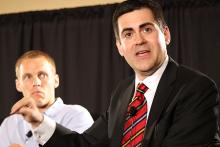
In the wake of tragic shootings of unarmed black men at the hands of vigilantes and white police officers, many institutions across American society, from the president on down, have sought to foster “national conversations” about race.
Perhaps surprisingly, an agency of the Southern Baptist Convention is sponsoring one of the most important and fruitful such conversations. The SBC’s public policy arm, the Ethics & Religious Liberty Commission, has hosted a summit on racial reconciliation last week in Nashville, Tenn.
Founded in 1845 in a split over slavery, the SBC has made laudable efforts to overcome its racist past. Some moderate and liberal Southern Baptist leaders prophetically denounced racism and supported the civil rights movement, but those very leaders were forced out of the denomination during a period of conservative resurgence in the 1980s. Today’s SBC leaders are in the tenuous position of saying that moderates were right about race but wrong about everything else.
Southern Baptist leaders are determined to challenge the lingering indifferent or crude attitudes on race where they still exist among the denomination’s mostly white, mostly Southern constituency.
Charged with carrying out the SBC’s political priorities, the ERLC is best known for its advocacy for religious freedom and against abortion and same-sex marriage. Yet in the wake of unrest over last year’s deaths of Michael Brown in Ferguson, Mo., and Eric Garner in Staten Island, N.Y., the ERLC hastened its plans to hold a summit on race.
The Nashville event drew more than 500 clergy, lay leaders, and seminarians from across Southern Baptist life. Thousands more watched a live stream online. The speaker lineup was male-dominated but was decidedly mixed race. The ERLC was much more eager to hear from ethnic minorities at this summit than it was to hear from gay people at its fall conference on homosexuality.
While the sexuality conference projected certainty and unanimity — acceptance of homosexual expression is inconsistent with Christianity and will not be tolerated in Southern Baptist churches — white Baptists came to their race summit with genuine humility and a spirit of repentance for the harm racism has caused.
Dean Inserra, lead pastor of City Church in Tallahassee, Fla., challenged the audience: “When you say a school or neighborhood has ‘gone downhill,’ what are you saying?”
Conceding his own need for greater empathy, Inserra recalled asking a black clergy colleague to help him understand how police violence affects black communities.
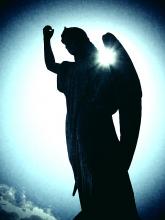
Someone recently asked me how I answer critics of the Open Letter to Franklin Graham that I co-authored last week. The points of particular interest were these:
1. In the spirit of Matthew 18, how do you justify writing an open letter to Graham without first going to him and speaking with him in private?
2. Your letter seems to advocate disobedience to the police. Is that what you’re saying?
Great questions! They’re especially relevant as we close the season of Lent and look forward toward Holy Week. For it is Holy Week when Jesus himself had the most interaction with the earthly authorities of his day.
The first line of the first paragraph of our letter explained that we write in the spirit of Matthew 18 in order to reconcile. Our intent in that was not to bash Dr. Graham; it was to make him aware of the need for reconciliation.
But why didn’t you go to Graham privately first, some have asked.
Notice the actual language of Matthew 18. Jesus says “If another member of the church sins against you, go and point out the fault when the two of you are alone.”
Jesus does not say, “If another member of the church sins against millions, and hundreds of thousands begin to follow his lead on the issue, go and point out the fault when the two of you are alone.”
This is a very important point. There is a difference between sin that affects one person and the sin of a leader that has potential to oppress and lead the church astray.
In Galatians 2:11-17, Paul publicly confronts Peter when his sin threatens to harm the whole church.
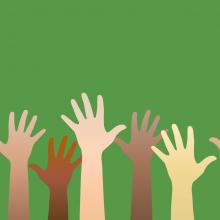
In the last several days, our country has witnessed and experienced, yet again, the effects of the unresolved issues of racism. We cannot rest complacent, convincing ourselves that everything is and will be all right on its own. That is a lie. The racial divide in the United States is boiling — we see the big cloud that rises over the roaring mountain. If we don’t act, the volcano will eventually explode. Our all-gracious God is calling us to turn from our wrong path.
Above other civic institutions, the church is responsible to do the work of healing. Our nation is desperately in need of healing. The sins of racism, classism, violence, and ideological intransigency are violently shaking and destroying the soul of our nation.
Where are the godly leaders in our country who are ready and willing to strip their souls of religious and ideological allegiances and surrender without fear, to seek the path that the Holy Spirit is eager to show us?
There is a way forward. We know that Jesus the Christ came to show us that way. We need to quit insisting that the way forward is my way. It is not my way — it is Christ’s way. No one Christian leader can claim to speak for God. Neither does God need any one of us to make the way clear — God can speak for God’s self.
There is one condition necessary for us to hear God’s voice: “If my people who are called by my name humble themselves, and pray and seek my face and turn from their wicked ways, then I will hear from heaven and will forgive their sin and heal their land.” (2 Chronicles 7:14.)
Someone once said that change happens by listening and then starting a dialogue with the people who are doing something you don't believe is right. There is no virtue in sticking to our allegiances. Our allegiances should not be to the right or the left or even the center. If we follow Jesus, our allegiances are to repentance, forgiveness, and reconciliation. Our life and our only hope are found in the Gospel of Jesus Christ.
Thomas Merton wrote, “You do not need to know precisely what is happening, or exactly where it is all going. What you need is to recognize the possibilities and challenges offered by the present moment, and to embrace them with courage, faith, and hope.”
The truth is that we do know what is happening, and we know what is going on. Our individual and collective sins are robbing us of our dignity. We, the Christian leaders of this country, can choose to wage war with the weapons of our ideological, denominational, and theological perspectives and convictions. Or we can choose to “recognize the possibilities and challenges offered by the present moment, and to embrace them with courage, faith, and hope.”
1. An Open Letter to Franklin Graham
"Within one day, tens of thousands of [Graham’s] faithful followers liked and shared his short, patronizing post that called ‘Blacks, Whites, Latinos, and everybody else’ to ‘Listen up’ and tune in to his take on why so many black people have died at the hands of police officers recently. According to Graham, the problem is “simple.” It can be reduced to their lack of obedience and bad parenting. … Thankfully, we have a response: We invite you to join with us in signing on to an open letter to Rev. Graham calling him back to the Gospel's ministry of reconciliation. Sign on now."
2. PHOTOS: The First Day of Spring and a Total Lunar Eclipse
Space.com offers this gallery of images from this early morning’s lunar eclipse (not visible from the United States). In addition to coinciding with the vernal equinox — kicking off Spring, as snow fell across the Northeast — the eclipse also overlapped with the supermoon. ...And astronomers across the world geeked out.
3. Ashley Judd Pressing Charges Against Misogynist Internet Trolls
“Everyone needs to take personal responsibility for what they write, and [for] not allowing this misinterpretation and shaming culture on social media to persist,” Judd said. “And by the way, I’m pressing charges.”
4. This Is What Life in Syria Is Like After Four Years of War
According to the U.N., 200,000 people have been killed. More than half of the country’s 21 million residents have fled their homes. Life expectancy has fallen by 20 years. It has becomes the world’s deadliest country for reporters. BuzzFeed interviews three Syrians to get a feel for life in the war-torn country.
From The Atlantic: “Mennonites are wrestling with the same questions faced by other churches across the country, made all the more complicated by their heritage: How should the faithful balance tradition and modern life? How should scripture inform people's understandings of same-sex relationships? And when members of a denomination disagree, how should they find their way forward?”
6. Pentagon Loses Track of $500 Million in Weapons, Equipment Given to Yemen
“In recent weeks, members of Congress have held closed-door meetings with U.S. military officials to press for an accounting of the arms and equipment. Pentagon officials have said that they have little information to go on and that there is little they can do at this point to prevent the weapons and gear from falling into the wrong hands.”
7. You May Be a ‘Poser’ Christian and Not Even Know It
According to Jarrid Wilson, author of Jesus Swagger: Break Free from Poser Christianity, cosmetic Christianity is an epidemic. Jonathan Merritt interviews the author to find out more.
8. U.N. Workers Accused in Nearly 80 Cases of Sexual Assault in 2014
“United Nations personnel were accused in nearly 80 cases of rape, sexual assault and sex trafficking in 2014 alone, with the bulk of the cases involving peacekeepers deployed to some of the most troubled parts of the world.”
9. Where My Ladies At? Gender Avenger Tracks Inequality at SXSW and Beyond
Wondering whether your favorite conference or event has its equal share of men and women at the podium? There’s an app for that. The Gender Avenger Tally (soon available on mobile) lets people calculate via event hashtag the levels of gender representation.
10. Happy Spring! Read Walt Whitman’s ‘The First Dandelion’
Simple and fresh and fair from winter’s close emerging,
As if no artifice of fashion, business, politics, had ever been,
Forth from its sunny nook of shelter’d grass — innocent, golden, calm as the dawn,
The spring’s first dandelion shows its trustful face.

The white ministers didn’t fly down to Alabama in January, when Sheriff Jim Clark clubbed Annie Lee Cooper outside of the county courthouse, nor in February when a state trooper fatally shot twenty-six-year-old Jimmie Lee Jackson in the stomach for trying to protect his mother after a civil rights demonstration.
But on Bloody Sunday everything changed. At 9:30 p.m. on March 7, 1965, ABC news interrupted a broadcast to show hundreds of black men, women, and children peacefully crossing the Edmund Pettus Bridge toward Montgomery and a sea of blue uniforms blocking their way. The marchers were given two minutes to disperse, and then the screen filled with the smoke of tear gas, police on horseback charging the screaming crowd, burly troopers wielding billy clubs and bullwhips, a woman’s hem rising up over her legs as a fellow marcher attempted to drag her away to safety.
Overnight the nation’s eye turned toward Selma. Rev. Martin Luther King sent a telegram to hundreds of clergy that Monday, urging them to leave their pulpits and join him in Alabama to march for justice. Some supporters, like the reporter George Leonard, packed their things immediately after watching the newscast from Selma.
“I was not aware that at the same momemt ... hundreds of these people would drop whatever they were doing,” Leonard wrote later.
“... That some of them would leave home without changing clothes, borrow money, overdraw their checking accounts, board planes, buses, trains, cars, travel thousands of miles with no luggage, get speeding tickets, hitchhike, hire horse-drawn wagons, that these people, mostly unknown to one another, would move for a single purpose to place themselves alongside the Negroes they had watched on television.”
Selma changed the course of history by paving the way for the passage of the Voting Rights Act, but its impact didn’t end there. The spirit of Selma rippled outward, forever changing those who made the long journey to Alabama — including a white minister from Washington, D.C., named Rev. Gordon Cosby.
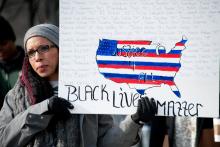
The lives of widows and orphans mattered. In Exodus 22:22 God tells Israel, “You shall not abuse any widow or orphan.” God was so concerned for the widow and orphan that the law provided for their care. It was mandated that grain be left behind for them during the harvest and along the edges of the fields (Deuteronomy 24:19-21, Leviticus 19:9-10). Failing to provide such care provoked God’s wrath.
Why this penchant for the widow and orphan? Did God value them more than anyone else in society? No. The Bible says that God shows no partiality (Acts 10:34). Yet, God does show compassion and concern for those who are most vulnerable. God lifts up the plight of the last and the least because they are at the greatest risk. And given this concern, God requires that we take special care so that these vulnerable, tender members of society are not neglected and forgotten. To take them for granted, to forget or abuse them invites God’s anger that their plight might become ours.
If we were to cast this concern into today’s context, I believe that God would assert that Black Lives Matter in the same way that the lives of widows and orphans mattered. Black lives matter because blacks, suffering numerous disparities that serve to disadvantage, are vulnerable in society.

Our tenth anniversary kicked off a season of unprecedented strife, most of which was circumstantial. My husband and I were homeschooling our three sons (all under the age of six), navigating multiple part-time jobs, and trying to manage my sudden health crisis. Both of us lacked sleep, energy, and patience. Prior to this time period, conflicts had not been an issue for us. We had them, processed them, forgave each other, and moved on. But a decade in, something shifted. And it wasn’t for the better.
In retrospect, we regressed to deeply embedded patterns from our families of origin. My northern European clan silently withdrew from one another and stoically pretended nothing was wrong. His Italian American household vocalized anger in operatic fashion. Tempers flared, voices cracked — and then someone made a joke and served dessert. That dynamic may have worked for them but when my husband applied it to our marriage, he unequivocally trumped me. Unable to match his emotional output, I resentfully deferred.
In the midst of one blowup, I made a tearful plea. When I’m angry, what if you listened rather than responded defensively? Based on his expression, this was indeed a new concept. As soon as he stopped matching my anger, the tenor, severity, and duration of our conflicts changed — this time for the better.
When he dialed down, he created a safe space for me to talk, which de-escalated my anger and validated my concerns. From his side of the equation, quieting his defensive tendencies allowed him to see that I was not imagining problems but rather responding to something real. When he was culpable — which was certainly not all the time — and offered me an apology, it calmed the raging sea and allowed us to address the actual issues rather than endlessly reacting toward one another.
This was not an easy or quick shift for us. I had to coach myself to speak up, present my side without blaming or accusing, and choose to trust him. He had to weather my tempest and face a degree of powerlessness. Fourteen years later, we’re still learning how to do this well.
I’m not a sociologist but I wonder if is this same dynamic contributing to the racial tension that we are now experiencing in the United States.

On a Sunday when the dominant color in Christian churches is pink — a symbol of joy for the third Sunday of Advent — I was wearing a black shirt, black pants, and a blue tie. Others in our congregation were wearing various combinations of black or blue.
This was a modest way of showing solidarity with African Americans and a reminder that “Black Lives Matter” while still showing empathy for the police in the Madison, Wisconsin, area who have worked hard over the years to have a diverse force that works to serve rather than dominate the varied racial and ethnic communities that exist here.
But even with a nod to the pressure police are under these days, the dominant focus was on the series of killings of unarmed black people. And we know that not all police departments have made the same efforts that have happened here over a generation — and that our police departments are not perfect either.
The movement to wear black on December 14 came from several African-American denominations across the nation. Here in Wisconsin, Rev. Scott Anderson, Executive Director of the Wisconsin Council of Churches, joined faith leaders in urging people to wear black to church on that Sunday.

The first time I really got it, I was 16 years old.
I had traveled by myself to visit distant relatives in Paris, with the hope of improving my French. Somehow, a weekend visit to the beach ended up with me on an unaccompanied trip on a train from a lazy seaside town back to the city. “I’m lonely here, God,” I thought. “Would you show me you are with me?”
Looking out the train window, there was a brilliant sunset hanging over the fields of canola flowers. There was my reminder of God’s love! As the train curved away from the sunset and it fell out of view, I sat back in my seat, satisfied with the gift I had been given … only to start up again as the train took a sharp curve to the left, the sunset back in full view.
“Oh,” I thought, “that’s what they mean by love being abundant and our cups overflowing. I get it.”
The first time I really got it, I was 18 years old.
On my first winter break back from college, I was driving in my parents’ car, listening to the radio. On air was a county executive discussing why a curfew might be a good idea for the county’s youth. According to him, instituting the curfew would help police arrest young people they suspected of other crimes. The implication was that it would only be enforced against those people who looked suspicious. Another voice on the show expressed concerns that what this meant was that the curfew would only be enforced against black teenagers.
“Oh,” I thought, “this is what they mean when they say the police target people they instinctively assume to be suspicious, even if they haven’t done anything wrong. I get it.”
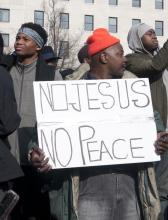
“Excuse my ignorance, I thought I was a free black man.”
“I’m 11 [years old], I matter.”
“You can choose to look away, but never again can you say you didn’t know.”
“How many times do we have to protest the same [s**t]?”
“White silence is white violence.”
“We have nothing to lose but our chains.”
These signs, and many others, lined the horizon of Pennsylvania Avenue on Saturday in Washington, D.C. In a ‘Justice for All’ march organized by Al Sharpton and the National Action Network, thousands of protesters gathered to protest police actions that have resulted in the deaths of unarmed young black men across the United States.
After marching from Freedom Plaza to the U.S. Capitol, protesters listened to speakers from national racial justice organizations address some of these most recent acts of police brutality.
Al Sharpton sought to draw attention to the diversity present on the streets.
“This is not a black march or a white march. This is an American march for American rights,” he said.
Indeed, the black community was not alone in speaking up against police brutality. One Latina activist encouraged her Latino brothers and sisters to “voice their pain” from police harassment and “come forth and unify with the African American community so we can be strong together.”
“¡Ya Basta!” she concluded. [“Enough is enough!”]

Could it be that the crescendo of dissention is divinely synched to yet again heighten disruptive unease among the status quo? Could it be that the promise of Emmanuel — "God is with us" — as proclaimed by the heavenly host, but feared by powerful elite, is unavoidably linked through the eternal truth — such that even the Church universal cannot celebrate one and avoid the other? Could it be that through Advent, we are called to acknowledge the humanity and parity of personhood, rather than rest in the laurels of privilege? The anger of youthful Ferguson protests was marginalized and dubbed as riots, but could it be that this Advent response manifested in expanded multiethnic solidarity is of divine intent to raise challenge to elitism and to demand respect for people of color as equals rather than as patronized subordinates? Could it be that whether or not the media chooses to ignore the connection, the Advent message for those with ears to hear is that perpetrators of brutality, the comfortable protectors of privilege, and the self-serving pundits of power that tried to nullify the everlasting promise were unsuccessful then and now? Could it be by divine design that unknown names, stolen lives, are now divinely lifted to eternal and global recognition as sacrificial symbols so that truth could come to light?

It’s no secret that the prison population in the United States has exploded in recent decades. We incarcerate our citizens at higher rates than any other developed nation. The federal prison population has increased by almost 790 percent since 1980. The number of children with one or more incarcerated parents has increased at an astonishing rate of 80 percent since 1991.
The mass incarceration of mostly Black and Latino men and women has moral implications in two ways. First, our current “tough-on-crime” approach to criminal justice has cost taxpayers a substantial amount with little effect on crime rates. These tax dollars could be spent instead on education, mental health, or drug rehabilitation. The way we spend public money reflects our public values. (Sound familiar?)
In addition, there are far-reaching moral implications of the act of naming someone “criminal." This label is inhumane, unjust, and unholy.
The “criminal” label has devastating effects on quality of life and equality of opportunity for many individuals. It is nearly impossible to shake. Most federal education grants are not available to someone with a criminal background. In many cities, access to subsidized or public housing is banned based on arrests or incarceration. Many states ban those with criminal backgrounds from food stamp eligibility. Being forced tocheck the box on an employment application indicating a past felony conviction essentially lands that application in the trash. The Sentencing Project estimates a total of 5.85 million people have been banned from voting because of a past conviction.
But Christians have a unique, biblically-based perspective on labels. In Christ, “sinners” become “beloved ones." The excluded, hated, and oppressed become included, wanted, and loved.

In a township called Khayelitsha, a woman wakes well before dawn to catch a bus that will carry her to the beautiful home in Cape Town where her employer/boss/master wants his tea in bed by 7 a.m. That is what “post-apartheid” South Africa still looks like today.
I just returned from a remarkable month in South Africa—the country that changed my life. I’ve often said that I learned my theology of hope from South Africa, during the anti-apartheid struggle I was thrust into as a young man. South African church leaders invited me in years ago. I got to see and experience the costly movement for freedom in the 1980s, witness the miracle of the inauguration of Nelson Mandela’s rainbow nation in 1994, and later join a wonderful reunion of South African activists, many of whom had been in exile or in prison, along with some of us international allies. So when I set out on a South African speaking and book tour 20 years after the new democracy, I didn’t know what to expect.
This time, I brought my family so they could see the country that had meant so much to me. What I discovered was a new generation of South African leaders ready to define their own vocation and mission as they help build a new nation. I quickly came to understand that making a deep connection with them was the real reason that I had come back. It’s tough to be in the shadow of a heroic generation of leaders like Desmond Tutu whose agenda has been the political liberation of South Africa—accomplished to the amazement of the world. On this trip, 20 years later, I saw the incredible freedom of movement now for all the former racial categories—but also how the systemic geography of apartheid was still painfully evident.
Economic inequality in South Africa is now greater than it was even during the days of apartheid, and gender violence is rampant. So these are the new agendas of a new generation: economic liberation and gender equality, with a commitment to lead on both in the churches. The rainbow of young people who turned up in such great numbers at all of our events truly want a new South Africa— a society yet to emerge.

On the fourth morning after Michael Brown’s death, residents from different parts of the region came together to pick up the pieces.
Some were young, some old. The majority arrived as part of the faithful. Others trickled in after spotting volunteers marching up and down West Florissant under the hot sun. Carrying brooms and large garbage bags, they collected whatever they could find: rubber bullets, broken glass, liquor bottles, tear gas grenades.
“I needed to come out today just to get some stability,” said Gary Park, 34, an auto mechanic who lives near the area in Ferguson where Brown was shot and protests erupted. Close by is the looted and burned QuikTrip that sits as a symbol of the severity of the unrest that resulted from an unnamed cop fatally shooting an unarmed 18-year-old.
“I wanted some encouragement,” Park said.
Park is a member of Passage Community Church in Florissant, which together with a few other local congregations, organized the Wednesday morning cleanup. Pastor Joe Costephens said that although the trash-collecting effort was a last-minute plan, more than 100 people joined the endeavor.
It was a simple act but not an insignificant one, especially since authorities reported two shootings only the night before. In fact, the continued violence has put future volunteer efforts on hold, Costephens said.
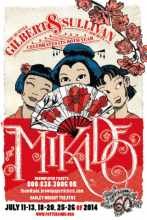
In my pastoral counseling class in seminary, the professor played a video of a counseling session of a black couple. He intended for us to learn some lessons on marriage counseling from it, but it turned out to be a laugh fest for the mostly white class. Repeatedly the husband and wife cut each other down with witty insults. My sense is that the couple reminded the students of George and Louise Jefferson from the TV show The Jeffersons. I sat next to an African American student that day and during the break I turned over to him and asked, “Do you find this funny?” He said, “I’m glad you asked,” and proceeded to tell me that he witnessed this kind of behavior firsthand in his own home since his parents are divorced. Needless to say he did not find the video amusing. I encouraged him to voice this to the class, which he courageously did when we returned from break. It seems while the professor intended to communicate one thing from showing the video, it communicated another because of the manner in which the students were racialized.
I share this story as an analogue to the recent controversy surrounding the production of the Seattle Gilbert and Sullivan Society’s The Mikado — a comic opera written in 1885 as a critique of British politics and institutions, set in distant, mysterious, and mostly made-up Japan. It began with Sharon Chan writing an editorial to the Seattle Times, calling the current production of it by an all-white cast as “yellowface” and “open[ing] old wounds and resurrect[ing] pejorative stereotypes.” Since then, Jeff Yang has also written an editorial for CNN.com entitled, “Yellowface staging of ‘The Mikado’ has to end.” I will not rehearse their arguments here; I write to address why this incident matters to North American evangelicals.
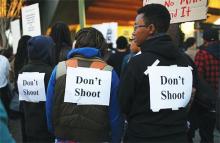
AFRICAN AMERICANS around the country are finding it is dangerous to call 911. Jack Lamar Roberson’s family in Waycross, Ga., discovered this the hard way when they placed an urgent call to 911 in October 2013 because his fiancée thought that he had taken an overdose of diabetes medicine.
Instead of sending EMTs, the dispatcher sent the police. Within 20 seconds of being in the house, police shot Roberson nine times, with bullets striking his back, arms, chest, and head as he held his arms up in the air. Although he was a veteran, he did not die from bullet wounds at the hands of strangers in a foreign land. Instead, white police gunned him down in his home.
Killings like this—which could be called anti-black hate crimes by police—are far too common. “Operation Ghetto Storm,” a 2012 report by the Malcolm X Grassroots Project, revealed that white police officers, security guards, or vigilantes kill an unarmed black man, woman, or child every 28 hours in the U.S. In 2012, police officers shot 57 people in Chicago—50 were black, two were white. Miami police officers killed seven black men within eight months in 2011. The Houston-based African-American News & Issues headlined an article this spring: “Open Season on Blacks in Texas: Cops Are Shooting First & Not Asking Questions.”
These police killings of black people emerge out of a culture and system of white supremacy. In such a context, police killing of black people is not a black problem. It is an American problem that shreds the curtains of democracy.

My sister has one of those plastic playhouses in her backyard for her two boys. When she hosted a garage sale a few years ago, children accompanying their shopping parents would see the playhouse and join in.
I remember looking over at one point and seeing five children playing together. Different ages, different sexes, different races. All strangers. All playing together.
When they looked at each other, they saw a playmate.
In his autobiography, Nelson Mandela noted that children have an innate openness that tends to get closed off as they spend more time in the world.
“No one is born hating another person because of the colour of his skin, or his background, or his religion,” Mandela wrote in his autobiography. “People must learn to hate, and if they can learn to hate, they can be taught to love, for love comes more naturally to the human heart than its opposite.”
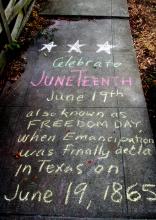
Sometimes it is hard to know even where to begin. We stare at this System, this complex web of human behaviors, and the institutions erected to memorialize them, and we simply do not know where to begin. How do we fix it?
"That's just the way it is," we say. "Some things will never change."
Systems are strange beasts. They take incredible human investment to maintain. They are the spaces by which many of us come to know ourselves, to know our place in this world. We identify ourselves in relationship to them. And yet they are so close to us as to be rendered invisible.
Until they hurt us. Until they step on us, exclude us, enslave us, brutalize us.
And this is when it gets interesting, of course; this is when they do their real work, these systems.

